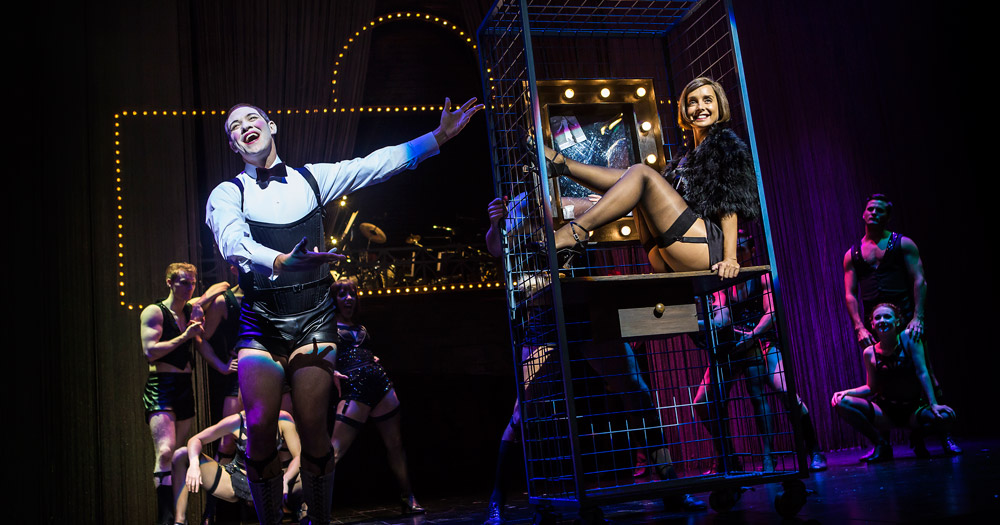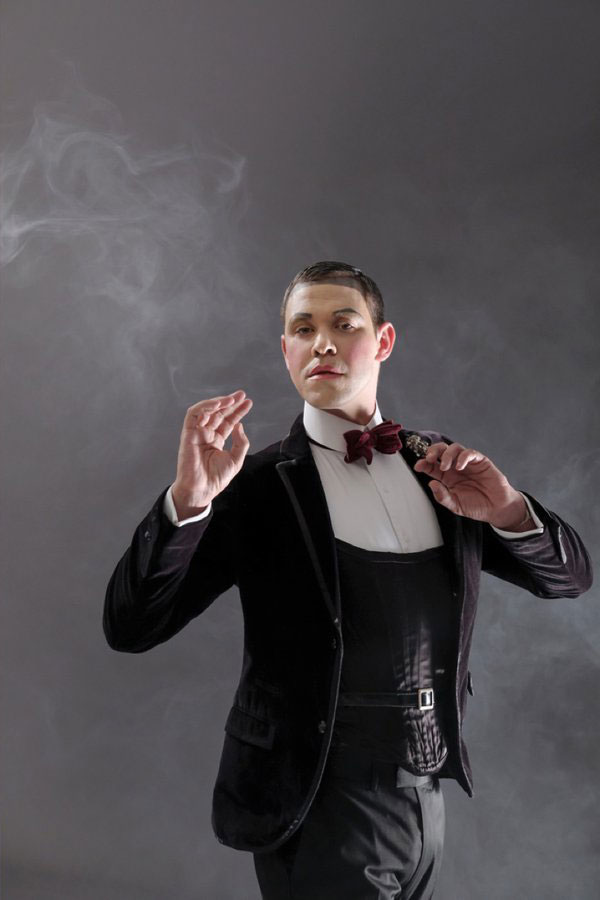For over half a century Kander and Ebb’s Cabaret has existed in some guise or another, be it the hugely successful stage show (which has had more revivals than Cher has had farewell tours) or Bob Fosse’s 1972 Oscar-winning film adaptation. That version has rightly earned its place amongst the annals of queer cinema history, due in part to its progressive views of sexuality and, of course, Liza Minnelli’s career-defining turn as the loveable mess that is Sally Bowles.
The Rufus Norris revival opens with Will Young singing the apropos ‘Willkommen’. At tonight’s performance the Bord Gáis house lights have mistakenly been left on, but the seasoned Young remains unfazed and cleverly incorporates this gaffe into his performance by interacting with the audience. The role of Emcee is a well-worn one for Will. He was nominated for an Olivier Award for his 2013 stint in the role, and given his pop-star credentials, his particular portrayal of Emcee can lean more towards whimsical than menacing at times. That being said, there’s no doubt his performance is the glue that binds this entire production together. You cannot avert your eyes when he is on stage and his voice takes on a new timbre, not heard in his pop offerings.
You May Be Surprised
If you are a fan of the film version as I am, you may be surprised to find that the stage version differs greatly in parts. The iconic Sally Bowles feels almost like a bit part in this version, sidelined to make way for other story arcs. This is not helped by Louise Redknapp’s performance. There’s no doubt that she has the vocal chops for the part but her acting often feels stilted and on occasion her delivery was almost robotic. Sally Bowles impish pixie cut was also usurped for a soccer-mom type hairstyle, which rather detracted from the sex appeal we expect from the part.
In one early scene, Sally tries to seduce the charming writer Clifford Bradshaw. Redknapp succumbs to multiple bouts of coughing during her dialogue, resulting in Sally Bowles sounding less seductress and more serial chain-smoker. In fairness, Redknapp managed to soldier through and perform a song at the end of her scene without any further interruption.
The songs that feature in both the movie and stage production are rambunctious, provocative and are the musical highlights of the show. Some of the lesser-known songs performed by Clifford and Sally’s landlady, Fraulein Schneider, lack the same umph and slow the pace at times.
Cabaret’s staging is incredible and the audience is transported from Fraulein Schneider’s boarding house and the bright lights of the Kit Kat club and back again with seamless precision. The dancers are sizzling hot and fill every inch of the stage with their slick choreography and statuesque physiques.
Catchy Nazi Youth Ditty
While the central theme of the stage and the film version remain the same, the mechanics in which it is conveyed on stage are completely different to the film. In the stage version a love story between Fraulein Schneider and Herr Schultz becomes the catalyst for the burgeoning distrust of Jewish people and the imminent rise of the Nazi party in Germany. It does takes an hour or so into the piece for this plot point to be uncovered, signalled by Young triumphantly singing Kander and Ebb’s catchy Nazi Youth ditty, ‘Tomorrow Belongs to Me’.
Ramped up with Nazi involvement, the second act takes a more definitive shape.
It’s a story that rather depressingly is still as pertinent today as it was when Cabaret was first staged on Broadway in 1966, which may also be part of the reason this production feels so fresh and relevant.
Cabaret is a jewel among Bord Gáis Energy Theatre’s run of top international productions this year and is well worth the price of admission. As Sally Bowles famously bellows in the show’s titular song ‘What good is sitting alone in your room? Come to the Cabaret.’
Cabaret runs at The Bord Gáis Energy Theatre until December 2, tickets here.
© 2017 GCN (Gay Community News). All rights reserved.

